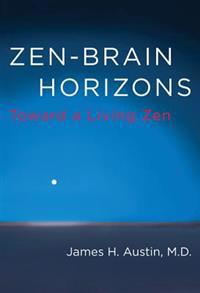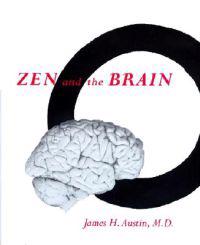Meditating Selflessly: Practical Neural Zen (Övrig)
avJames H. Austin
ISBN: 9780262015875 - UTGIVEN: 2011-11-01This is not the usual kind of self-help book. Indeed, its major premise heeds a Zen master's advice to be less self-centered. Yes, it is "one more book of words about Zen," as the author concedes, yet this book explains meditative practices from the perspective of a " neural Zen." The latest finding[...]
Zen-brain Horizons (Inbunden)
avJames H. Austin
ISBN: 9780262027564 - UTGIVEN: 2014-09In Zen-Brain Horizons, James Austin draws on his decades of experience as a neurologist and Zen practitioner to clarify the benefits of meditative training. Austin integrates classical Buddhist literature with modern brain research, exploring the horizons of a living, neural Zen. When viewed in the[...]
Zen and the Brain (Häftad)
avJames H. Austin
ISBN: 9780262511094 - UTGIVEN: 199907Winner of the Scientific and Medical Network Book Prize for 1998 Aldous Huxley called humankind's basic trend toward spiritual growth the "perennial philosophy." In the view of James Austin, the trend implies a "perennial psychophysiology" -- because awakening, or enlightenment, occurs only when th[...]
Chase, Chance and Creativity: The Lucky Art of Novelty (Övrig)
avJames H. Austin
ISBN: 9780262511353 - UTGIVEN: 2003-09-12This first book by the author of Zen and the Brain examines the role of chance in the creative process. James Austin tells a personal story of the ways in which persistence, chance, and creativity interact in biomedical research; the conclusions he reaches shed light on the creative process in any f[...]
Zen-Brain Reflections (Övrig)
avJames H. Austin
ISBN: 9780262514859 - UTGIVEN: 2010-09-28This sequel to the widely read Zen and the Brain continues James Austin's explorations into the key interrelationships between Zen Buddhism and brain research. In Zen-Brain Reflections, Austin, a clinical neurologist, researcher, and Zen practitioner, examines the evolving psychological processes an[...]
Meditating Selflessly (Häftad)
avJames H. Austin
ISBN: 9780262525190 - UTGIVEN: 2013-10This is not the usual kind of self-help book. Indeed, its major premise heeds a Zen master's advice to be less self-centered. Yes, it is "one more book of words about Zen," as the author concedes, yet this book explains meditative practices from the perspective of a " neural Zen." The latest finding[...]








